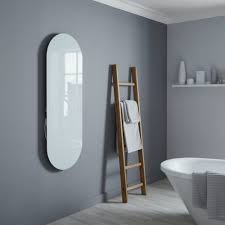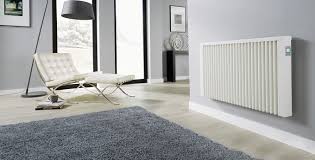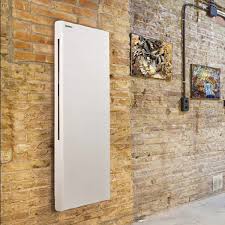Electric heating in the home
It is impossible to make sweeping statements about any energy used in the home, and the truth is that electrical heating is not always suitable for every building. However, it is a perfect response to smaller buildings with low energy requirements – in other words electric heating is great for homes, with bills that can be kept low and manageable. It also helps to reduce the overall carbon impact of a building which is critical for all our green future.
The benefits of electrical heating
Lower upfront costs when building or renovating a home
You can build faster and with greater freedom
- No need for gas on site
- No need for boiler flues
- No need for boiler condensate pipework
- No need for service risers serving gas
- No heating pipework in the house, which also means a lower overheating risk, and less risk of leaks
Peace of mind
- No need for complex billing arrangements
- No annual gas or boiler servicing
- Little to no service or maintenance required

Electric Radiators vs Panel Heaters
What makes a radiator a radiator?
As it happens, “radiator” is probably one of the most misused words used in the heating industry. Technically, we should only call a heater a radiator if it uses radiation as its primary method of delivering heat.
How radiators workRadiation is the same form of heat given off by the sun – heat which travels in a direct line from the heat source to warm people and objects directly, regardless of the temperature of the air. However, in practice, the word “radiator” is used widely to refer to many different heating products. Some people even use the word radiator to refer to storage heaters, which give off heat purely by convection. But, rest assured – the electric radiators you’ll find at Electric Radiators Direct are all radiators in the correct sense: they use a combination of radiated and convected heat to provide efficient and effective home comfort heating.
What are panel heaters?
Panel heaters are low cost home heaters which heat purely by convection. Panel heaters, sometimes described erroneously as “panel radiators”, or more accurately “convection heaters”, heat rooms by warming the air. Hot elements in the panel body heat the air as it circulates around the room, keeping the room’s occupants cosy by surrounding them with warm air. Because the elements which heat the air are unenclosed, the heaters are cheaper and easier to manufacture than our electric radiators. Whilst convection heaters can be a fast and effective source of heat, they also come with three significant disadvantages which you should consider before choosing this cheaper option.

Panel heaters are less efficient than electric radiators
Convected heat is inherently less efficient than radiated heat. Radiation heats people directly, transferring energy in one straight-forward transaction. Convection heat is more convoluted. Panel heaters transfer heat to the air which in turn transfers heat to the people in the room. This is much less efficient. Heating by radiation effectively cuts out the middle man in the convection heating process, allowing less scope for energy loss. This means that you’ll need to use more power to heat your room with panel heaters than you would with energy efficient electric radiators. This in turn makes the heaters more expensive to run than radiators. If you use a panel heater frequently, any initial savings you made by choosing it over an electric radiator would quickly be outweighed by the greater running costs.
Panel heaters are not suitable for constant use
The unenclosed elements which make panel heaters cheap to produce have some unfortunate disadvantages. Because the hot elements come into direct contact with the air, any dust circulating around the room can burn and leave sooty deposits on the wall. Over time this can cause wall blackening and damage to paintwork. Circulating dust particles can also agitate allergies. This means that panel heaters should not be used as your primary home heating source. The good news is that wall-blackening only becomes a problem for panel heaters if they’re used every day; if you have a panel heater for portable use, or for heating a secondary space like a spare room, wall blackening won’t be a problem. Wall-blackening is an issue common to all convection heaters – no matter what the brand, price or style.
Panel heaters are less durable than electric radiators
Because panel heaters are less efficient than electric radiators, they have to work much harder to heat home spaces. This can give them significantly shorter lifespans than our energy efficient radiators. The lifespans of panel heaters often suffer from cheaper manufacturing designed to satisfy a demand for low priced heaters. Again, this is only a problem if you intend to use panel heaters as your prime source of heat – a shorter lifespan will not be an issue in rooms you only use occasionally.

How energy efficient are electric panel heaters?
Electric radiant panel heaters use less power and give out a less intense heat than some other portable electric heaters (like radiant bar heaters or convection fan heaters). As such they’re considered to be reasonably energy efficient as far as electric heaters go, using around 1/3 as much electricity as their radiant bar heating cousins. They are a little slower to heat up than some other electric heaters though, so aren’t necessarily as appropriate in places where heat is needed quickly and for relatively short amounts of time.
The Benefits of Installing Electric Radiators
It has been a long-held belief by many people that electric heating is a more costly option than using other fuels, particularly gas. While it is certainly true that gas is generally cheaper than electricity, the long-term benefits of installing electric radiators far outweigh those initial costs.
Additionally, when compared to many other European countries, the UK enjoys lower electricity prices. Indeed, out of all of the countries which are members of the EU, the United Kingdom pays the fourth-lowest price for its electricity.
Energy-Efficient
For landlords, facilities managers and owners of businesses such as hotels and boarding houses, keeping the cost of commodities such as gas and electricity as low as possible is paramount. Installing electric radiators throughout a property is not only extremely cost-effective, but is also a very eco-friendly move.
There is no energy wastage with electric heaters. Unlike a boiler-based heating system, where energy can escape through the flue, 100% of the electricity used to power an electric radiator is converted into heat. This ensures that less energy is required to run an electric radiator, saving on long-term running costs.
Another cost-effective benefit which electric radiators bring to the table is the ability to be able to control the temperature in different rooms individually, rather than from one central control point.
Greater Reliability
The initial installation of electric radiators is simple and relatively cheap. The biggest advantage is that this type of radiator does not require the laying of any pipe-work. As long as there are plenty of power points available, installation is quick, stress-free and painless.
This is especially advantageous for those who are completely renovating a property, where there are often enough other problems to overcome. The absence of pipe-work also means that the ongoing maintenance of this type of heating system is straightforward and highly cost-effective. It is often the case that little maintenance is actually required anyway.
As electric radiators have virtually no moving parts, there is little that can wear out or break down. On average, electric heating systems last 50% longer than their gas counterparts.
Energy of the Future
The matter of health and safety is an important one in all aspects of life. For commercial ventures, such as boarding houses and hotels, that importance is magnified still further.
As electric radiators do not burn any internal fuel, there is no risk of explosions or poisoning from carbon-monoxide fumes. Additionally, there is no chance of pipes bursting or radiators leaking – a scenario that can be quite devastating in properties that are left empty during the winter period.
There is little doubt that electricity is going to be the major form of energy in the future. Energy companies are investing heavily in new forms of electricity production, such as solar panels, wind farms and tidal energy.
Clean and environmentally friendly, electricity is the one form of energy that does not harm the planet. There has never been a better time to switch to electrically powered radiators to heat your property.